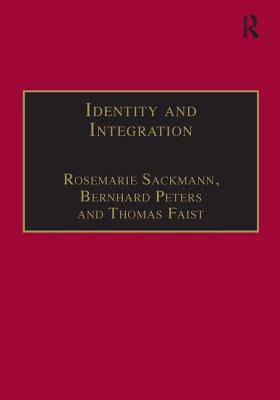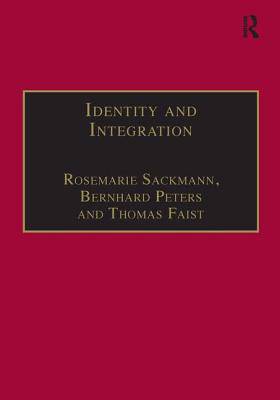
- Afhalen na 1 uur in een winkel met voorraad
- Gratis thuislevering in België vanaf € 30
- Ruim aanbod met 7 miljoen producten
- Afhalen na 1 uur in een winkel met voorraad
- Gratis thuislevering in België vanaf € 30
- Ruim aanbod met 7 miljoen producten
Zoeken
Omschrijving
Symbolic boundaries, cultural differences and ethnic conflicts have gained significance and new meanings in a global situation characterized by the dissolution of traditional political and societal structures. Communications and political and economic interactions increasingly cross the borders of states, nations and ethnic communities, and yet symbolic borders and separate group identities are nevertheless asserted. The perceived efforts of migrants to maintain their cultural and ethnic identities are often blamed as a cause of conflict within nation states. This intriguing volume recognizes that migrants with an Islamic background are seen as especially problematic cases. Turks are the biggest category among Muslim migrants in Europe and more than one third of all Muslim migrants in Europe are from Turkey. Referring primarily to immigration from Turkey, this book combines both exemplary case studies of Turks within Europe and theoretical papers with innovative perspectives on the relations between integration and identity.
Specificaties
Betrokkenen
- Auteur(s):
- Uitgeverij:
Inhoud
- Aantal bladzijden:
- 256
- Taal:
- Engels
- Reeks:
Eigenschappen
- Productcode (EAN):
- 9780754632115
- Verschijningsdatum:
- 28/08/2003
- Uitvoering:
- Hardcover
- Formaat:
- Genaaid
- Afmetingen:
- 152 mm x 219 mm
- Gewicht:
- 557 g

Alleen bij Standaard Boekhandel
+ 391 punten op je klantenkaart van Standaard Boekhandel
Beoordelingen
We publiceren alleen reviews die voldoen aan de voorwaarden voor reviews. Bekijk onze voorwaarden voor reviews.











